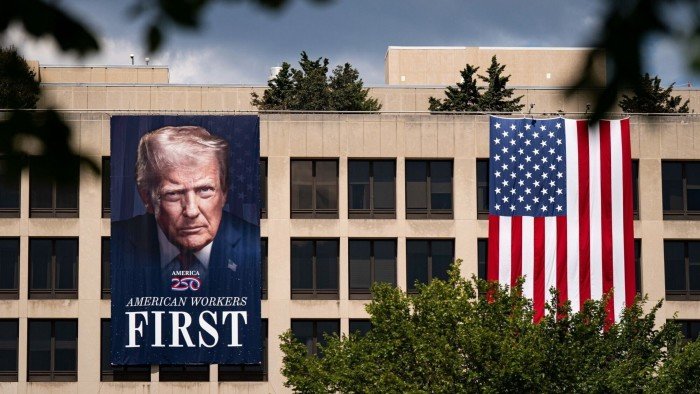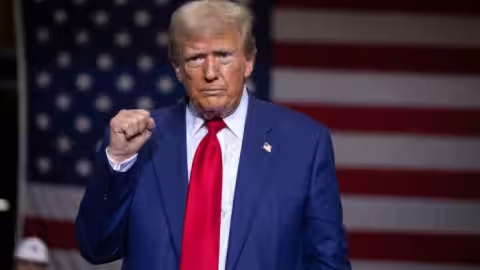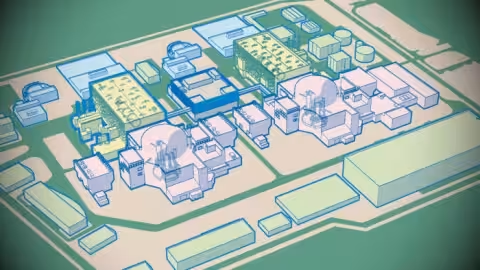This article is an on-site version of our FirstFT newsletter. Subscribers can sign up to our Asia, Europe/Africa or Americas edition to get the newsletter delivered every weekday morning. Explore all of our newsletters here
Good morning and welcome back to FirstFT Asia. In today’s newsletter:
-
AI bubble fears
-
China and India’s warming ties
-
Labubu frenzy powers Chinese toy company
-
The growing insurgency within the Fed
US tech stocks sold off yesterday as a wave of concerns that intense enthusiasm surrounding artificial intelligence could be overdone slammed into some of Wall Street’s most speculative companies.
Stock drop: The tech-heavy Nasdaq Composite closed down 1.4 per cent, driven by drops for some of this year’s best performing stocks. Software group Palantir fell 9.4 per cent and Nvidia — whose advanced AI chips are relied upon across the industry — lost 3.5 per cent. The decline marked the biggest one-day drop for the index since August 1.
Spooked investors: Traders pinned some of the decline on a report released late on Monday by a branch of the Massachusetts Institute of Technology in which researchers said that “95 per cent of organisations are getting zero return” from their investments in generative AI. “The story is spooking people,” said one trader close to a multibillion-dollar US tech fund. The stock drop also came days after OpenAI chief executive Sam Altman signalled that an AI bubble might be forming. Here’s what he said.
And here’s what else we’re keeping tabs on today:
-
Monetary policy: China announces its loan prime rate decision. Indonesia and New Zealand also make rate decisions.
-
India-Russia relations: Indian foreign minister S Jaishankar continues a visit to Russia. The trip comes after the US doubled tariffs on Indian goods owing to New Delhi’s purchases of Russian oil.
Five more top stories
1. China and India have achieved a “new environment” of “peace and tranquillity”, New Delhi’s national security adviser told Beijing’s top diplomat, as the two countries move to repair ties shattered by a deadly border clash in 2020. Their meeting yesterday will pave the way for Indian Prime Minister Narendra Modi’s first visit to China in seven years at the end of this month. Here’s how relations improved.
2. The White House yesterday said it was “ironing out the details” of a deal that would entail the US government taking a 10 per cent stake in Intel. The US chipmaker’s manufacturing business has incurred billions of dollars in losses as it struggled to compete with Taiwan Semiconductor Manufacturing Company.
3. The global popularity of the furry elf doll Labubu helped Pop Mart’s sales more than triple in the first six months of the year. The Chinese toy company is worth more than twice as much as Hasbro and Mattel combined following the Labubu frenzy that has been embraced by celebrities including Rihanna and David Beckham.
4. Donald Trump has said that the US could play a role “by air” in a postwar security guarantee for Ukraine, as he warned Vladimir Putin that he would face a “rough situation” if he did not co-operate on a peace deal. The question of security guarantees is one of several that remain unresolved after the White House summit between Trump and Volodymyr Zelenskyy.
5. Bill Gates is funding a $1mn competition to spur the use of AI to find innovative treatments for Alzheimer’s disease. The winning tool will be released for free on the Alzheimer’s Disease Data Initiative’s cloud “workbench” to be used by scientists globally. Read the full story.
News in-depth
Jay Powell’s speech at the Federal Reserve’s August summit in Jackson Hole, Wyoming, is always a high-stakes moment. This year, the central bank’s chair takes the podium under fire — facing fierce attacks from Trump and a growing insurgency within his own institution.
We’re also reading . . .
-
Tariffs: Trump is not ushering in a new global trading order, writes Inu Manak. The US is simply denying itself the benefits of the system that already exists.
-
Drug cartels: With the global cocaine business booming as never before, Latin America’s organised crime groups are diversifying into a swath of other illicit activities.
-
Luxury hotel uniforms: Design studios that produce bespoke clothing for grand hotels are facing complex demands, writes John Gapper.
Chart of the day
At a Nio battery-swapping station near Shanghai, it takes just three minutes to power up an electric vehicle. A series of investments in swapping infrastructure by CATL, the world’s largest battery maker, is set to pave the way towards the wider adoption of the technology in China, the world’s biggest EV market.
Take a break from the news . . .
From sustainable materials to passive design, architects are turning to the tropics for inspiration on how to live in an era of intensifying climate challenges.
























